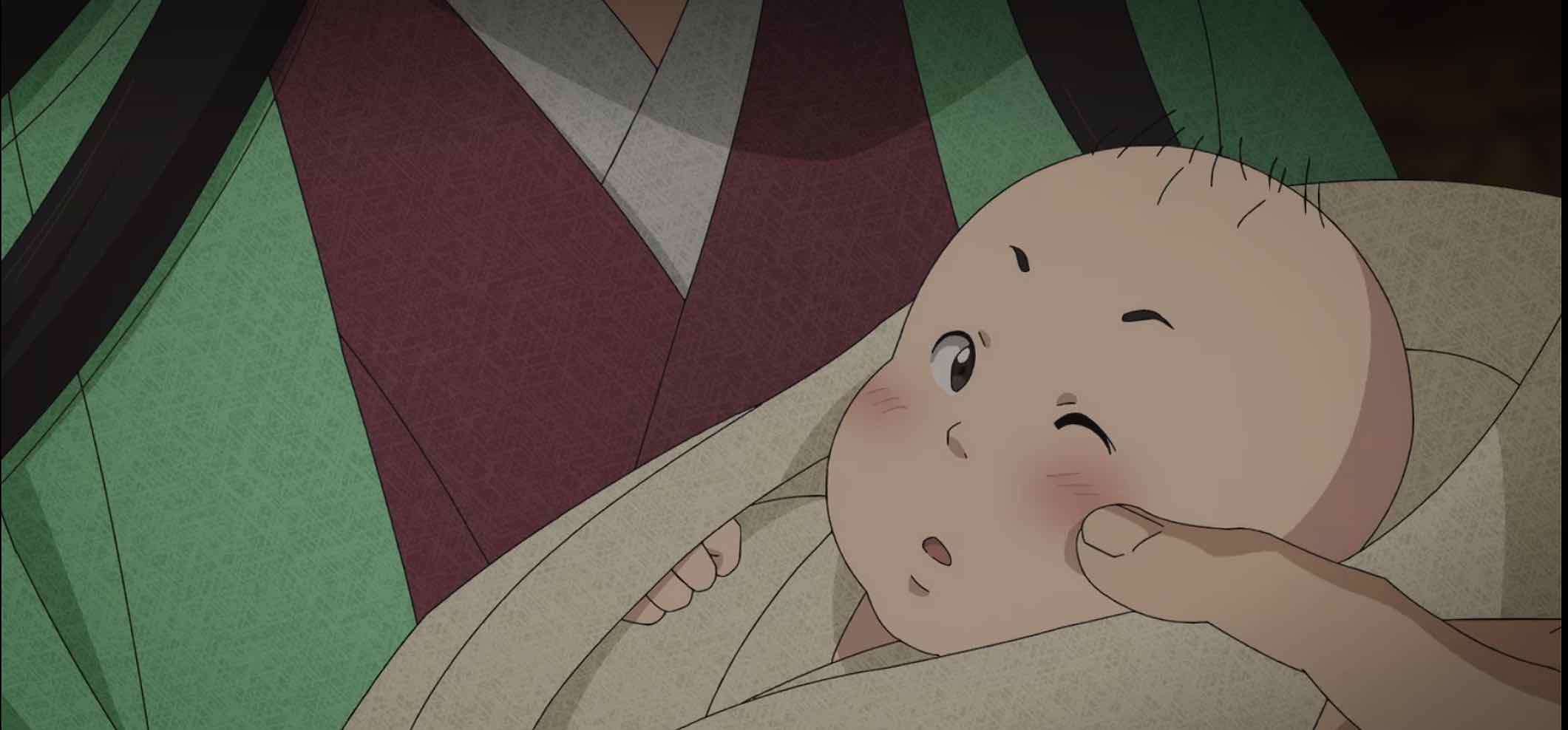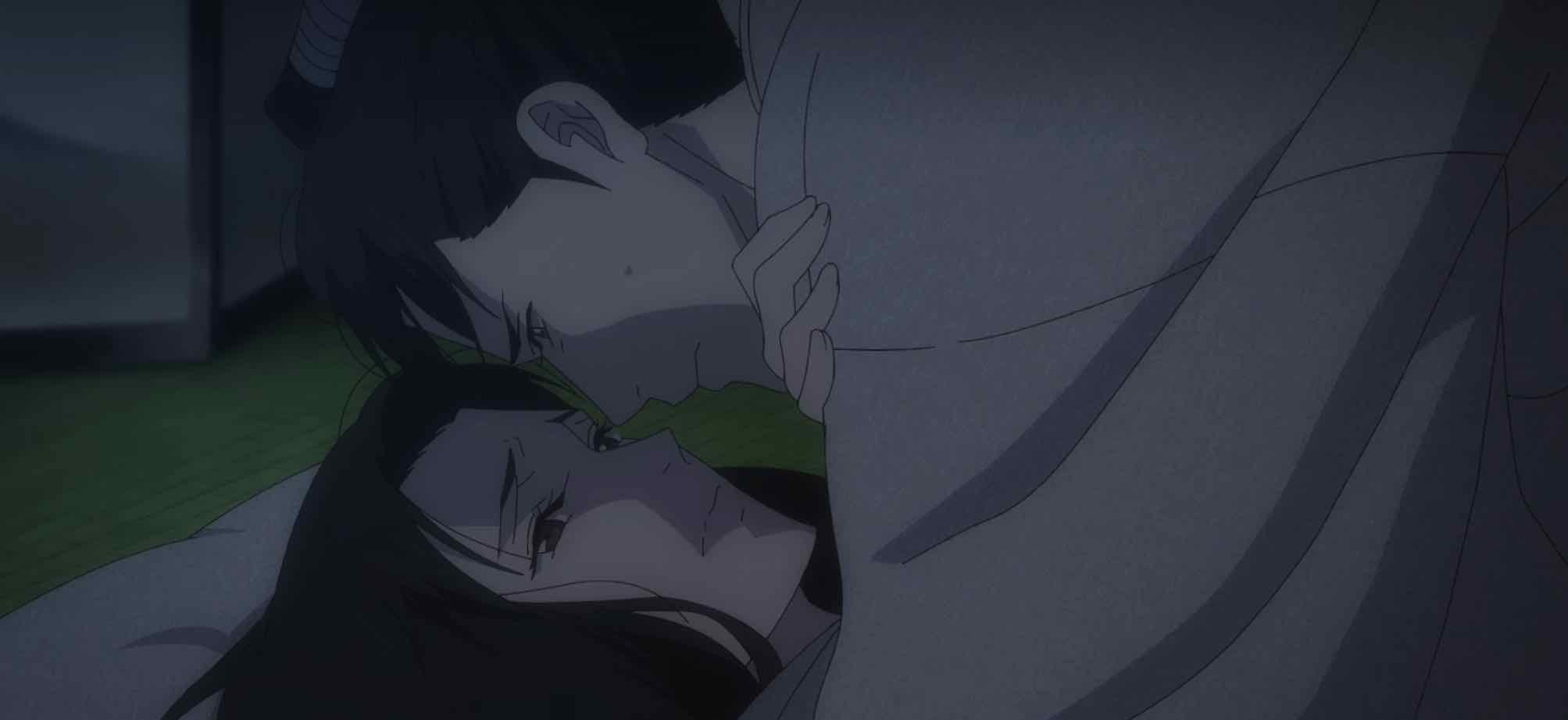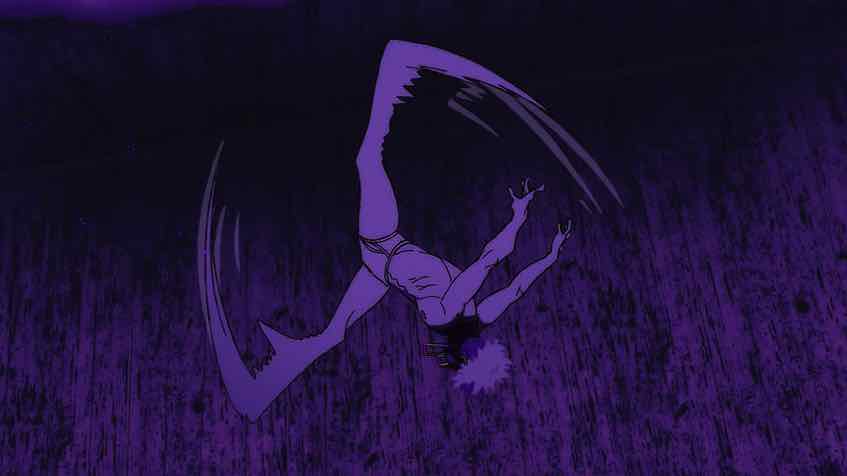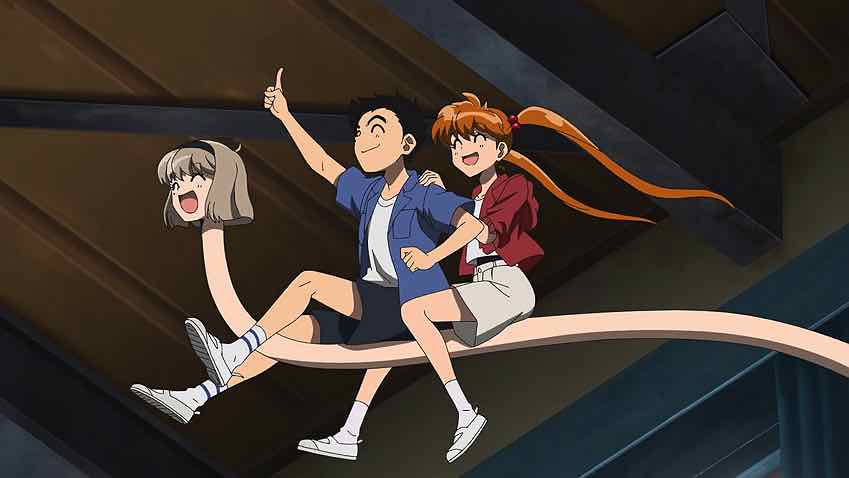This is a dark ride, no question about it. Given the subject matter I don’t think that’s surprising of course. But Oooku has a fairly abstract way of dealing with the more harrowing aspects of its plot – which somehow makes them that much more unsettling. It’s a clever conceit, basically taking on what could be called apocalyptic events through their impact on everyday life. That’s not uncommon in fiction but this is certainly an interesting variation on the theme, given the setting.
I must confess I find Sutezou’s side of this a bit odd. I don’t think he looks all that much like Arikoto first of all, given how taken everyone is by the resemblance. Given that this is anime (and manga) and it’s not like there’s the challenge of finding two actors who look alike or anything, it’s an interesting quirk. The man himself is certainly odd too, almost a simpleton I think. But he does serve the function he’s brought in to serve – he makes a baby with Iemitsu, which is something Arikoto couldn’t do. He earns himself a new name from Iemitsu in the process – O-Raku. But about a minute after the “birth” of O-Raku he injures himself jumping for joy, and winds up semi-paralyzed.
Talk about an anti-climactic end for a character arc, but there you go. In the big picture Arikoto is the only one that really matters to Iemitsu, and to an extent to the story itself. One of the recurrent themes of Oooku is “the more things change, the more they stay the same”. We see it in the way many elements of court life change only in terms of gender, not role. Iemitsu notes that her fate is actually not all that different than if she’d been raised as a traditional princess whose main function was to produce an heir.
One of the great apocalyptic novels ever written, Earth Abides by George R. Stewart, draws its title from a line in Ecclesiastes 1:4 — “Men go and come, but earth abides”. Like Oooku, Stewart’s book centers on the impact of a plague which decimates the human population (in that case, worldwide). I couldn’t help but think of both the title and the novel itself watching Oooku this week, because on some level this is a story of how even the most extraordinary things eventually seem ordinary to those living with them.
Earth abides. Japan abides. It adjusts to this new reality, with the focus seemingly on changing as little as possible where the “old ways” are concerned. This strikes me as a very Japanese way of thinking – better to die than to live the wrong way. All of the characters in Oooku – despite many being theoretically among the most powerful in the land – are ground in the gears of history. Even the powerful are powerless against the immovable object of tradition and the irresistible force of unprecedented change. And Oooku, more than anything, is a chronicle of what happens when that irresistible force meets that immovable object.






